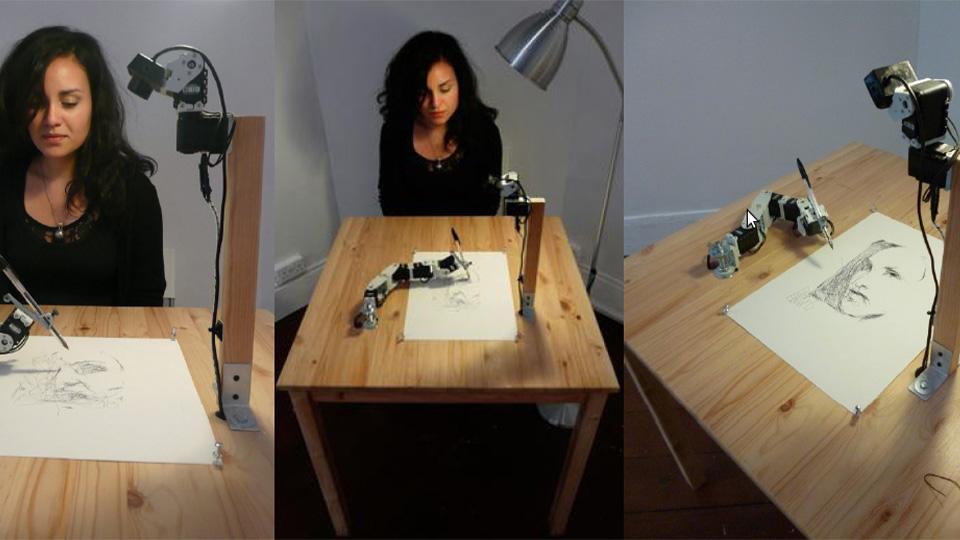Major grant awarded for creativity research project
Primary page content
A collaborative research project, led by researchers at Goldsmiths and Konstanz University, has received a joint international grant of nearly £700,000.

"Paul the robot" performing a live portrait at Goldsmiths, Lab. of Professor Frederic Fol Leymarie in collaboration with Patrick Tresset.
The project, titled ‘Embodied agents in contemporary visual art: how robotics and artificial intelligence could influence creativity’ has secured funding investment from a UK-German arts and humanities partnership.
The Goldsmiths-led philosophy research is one of 20 projects to be supported by a £5.5 million investment from the UK Arts and Humanities Research Council (AHRC) alongside matched funding from the German Research Foundation (DFG) partnership.
Computing Professor Frederic Fol Leymarie is leading the research, which looks at the evolving roles of artificial intelligence and robotics in the arts and creativity. It is a collaboration between Goldsmiths College and Konstanz University in Germany.
Speaking on the significance of the grant, Frederic said: "This major grant underlines nearly two decades of investigations at the frontiers of the arts, computing, robotics, psychology, sociology and philosophy.
“Thanks to this bi-national support, the two teams, which have collaborated in the past, will be able to grow the scope of their common interdisciplinary research while hosting and working with artists from around the world."
Work on the project begins on February 1, 2023, and the first collaborative meeting between the UK and Germany is set to take place in Spring.
Professor Christopher Smith, Executive Chair of AHRC and UK Research and Innovation (UKRI) International Champion said: “This flagship collaboration is a prime example of the benefits of taking an international approach to research; introducing new ideas and perspectives to maximise global impact.
“Collaborative UK-European projects such as these provide important opportunities for UK researchers to develop their networks and career opportunities, as well as helping to tackle key societal issues.”
Visit the Embodied Agents in Contemporary Visual Art project website for further information.